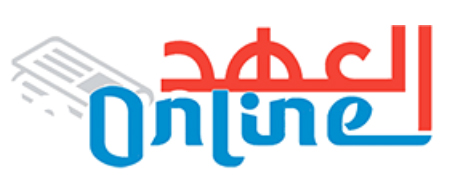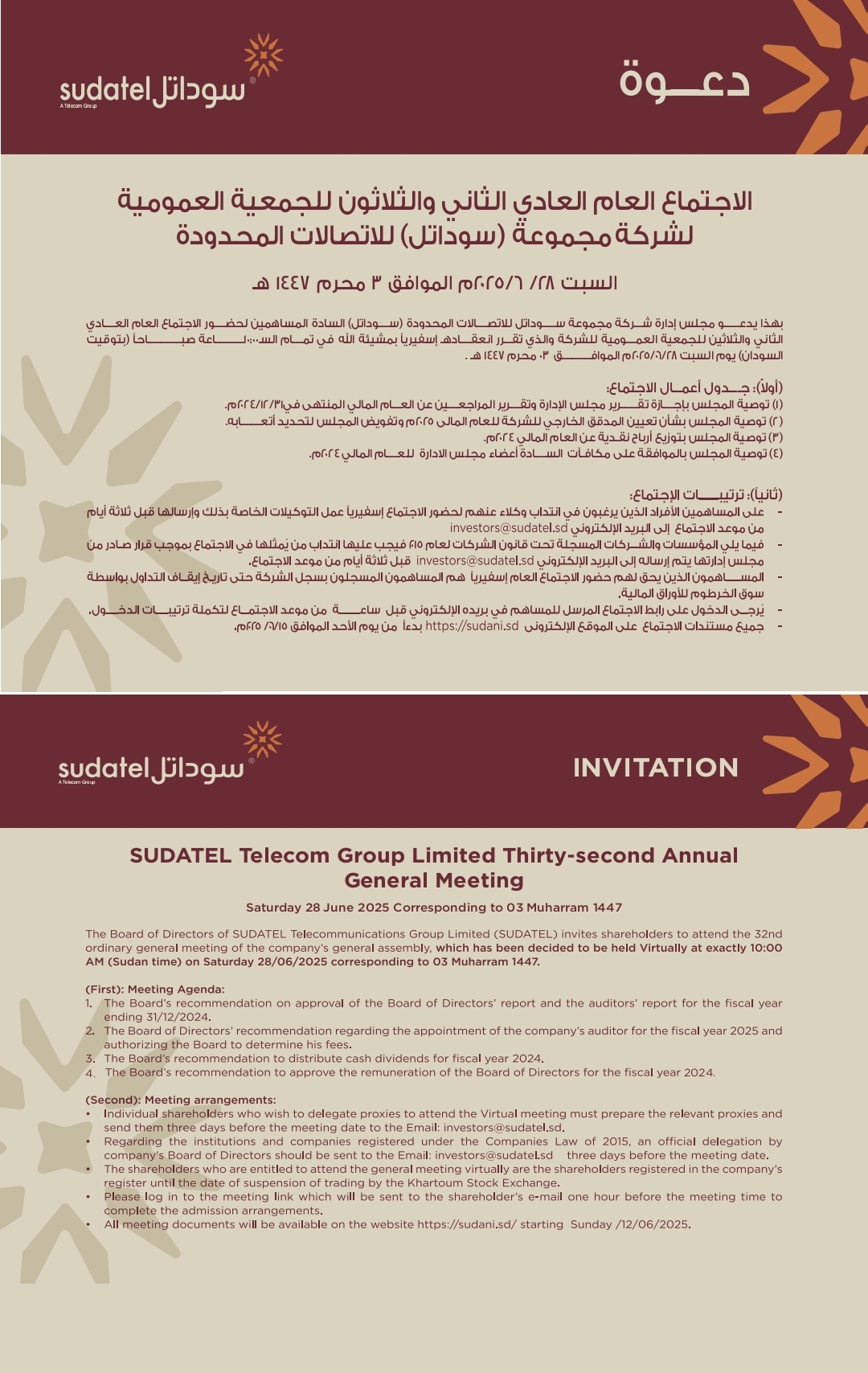د. محمد يوسف قباني يكتب: تحديات الإنسان السوداني: مقاربة ما بين وعي المسؤولية أو العيش كضحية..* *Challenges facing Sudanese people: A comparison between awareness of responsibility and living as a victim..* Dr. Mohamed Elgabbani..

د. محمد يوسف قباني يكتب: تحديات الإنسان السوداني: مقاربة ما بين وعي المسؤولية أو العيش كضحية..*
*Challenges facing Sudanese people: A comparison between awareness of responsibility and living as a victim..*
Dr. Mohamed Elgabbani..
في قلب الأزمة السودانية التي تتفاقم يوماً بعد يوم بفعل الحرب والانقسام والنزوح، يبرز سؤال عميق ومؤلم في آنٍ واحد: هل لا يزال الإنسان السوداني يمتلك خيار النهوض بوعي المسؤولية تجاه نفسه ومجتمعه، أم أنه استسلم لصورة الضحية التي رسمتها له الأحداث والوقائع المريرة؟
هذه المقالة تحاول أن تتجاوز سطح الأحداث لتغوص في أعماق الذات السودانية، وتقدم مقاربة تحليلية بين خيارين مصيريين: إما وعي المسؤولية كطريق للنجاة الجماعية، أو الاستسلام لدور الضحية الذي يُغذّي مزيداً من الهشاشة والانكسار.
منذ اندلاع النزاعات المسلحة الأخيرة، ودوامة الأزمات الاقتصادية والاجتماعية والسياسية، يعيش السودانيون واحدة من أكثر المراحل التاريخية تعقيداً. لا تتوقف آثار الحرب عند حدّ الدمار العمراني والخسائر البشرية، بل تمتد لتطال كيان الإنسان النفسي والاجتماعي، وتُعيد تشكيل صورته عن ذاته وعن دوره في الحياة.
لقد أصبح الوجود في السودان مرهوناً بالبقاء لا بالحياة، وبالنجاة لا بالكرامة، وهو ما يضع الإنسان في مواجهة مستمرة مع مشاعر القلق والعجز والتهميش، ويجعل من سؤال المسؤولية سؤالاً شائكاً ومعقّداً.
العيش كضحية ليس مجرد نتيجة للظروف، بل قد يتحول إلى خيار لا واعٍ يتخذه الإنسان حين تتراكم عليه الأزمات. وعكسه تماماً، خيار وعي المسؤولية هو عملية إدراك ذاتي وواقعي، يتطلب شجاعة نفسية وأخلاقية عالية، لتجاوز الألم والانكسار وتحمل أعباء التغيير.
الضحية لا تعني فقط مَن تضرر فعلياً من الحرب أو الفقر أو التهجير، بل تعني في هذا السياق من اختار أن يعيش متقوقعاً في ألم الخسارة، ويبرر سكونه بالعجز، ويتنازل عن أية محاولة للفعل أو التأثير. هذا النمط النفسي يحمل مخاطر كبيرة، منها:
1. الانسحاب من الحياة العامة والتقوقع في هموم فردية.
2. تغييب الفاعلية المجتمعية لصالح الانتظار السلبي لـ”المنقذ” الخارجي.
3. تكريس الاستضعاف والتهميش بوصفه قَدَراً لا يمكن تغييره.
في المقابل، يمثل وعي المسؤولية انتقالاً نوعياً في وعي الإنسان السوداني. وهو لا يعني تجاهل المعاناة، بل الاعتراف بها والعمل على تجاوزها من خلال:
1. الإصرار على التعلم والعمل رغم الظروف.
2. المشاركة في مبادرات المجتمع المدني والإغاثة والمناصرة والدعم.
3. الحديث عن الأمل كقوة نضالية وليس كترف شعري.
4. رفض تأليه المعاناة، والتأسيس لثقافة التغيير الذاتي والجماعي.
والسؤال المؤلم هنا: كيف تشكّلت عقلية الضحية في السياق السوداني؟ ولفهم المأزق بشكل أعمق، لا بد من العودة إلى الجذور:
فالنظام التربوي والاجتماعي عندنا يتميز بطابع تلقيني يميل إلى تكوين أفراد يتّسمون بالخضوع والامتثال، حيث يُربّى الطفل على تقبّل التعليمات دون أن يُطلب منه التفكير فيها أو نقدها. في مثل هذا النظام، تُقدَّم المعرفة كحقائق مُطلقة ينبغي استيعابها لا مناقشتها، ويُنظر للطاعة على أنها مزية، بينما تُعتبر المبادرة أو طرح
الأسئلة سلوكاً خارجاً عن المألوف. وغالباً ما يُكافَأ الطفل عندما يُظهر امتثالاً كاملاً، ويُعاقَب عند محاولة كسر النمط. هذا النوع من التنشئة يُضعف من قدرة الإنسان على اتخاذ قرارات مستقلة، ويُقيّد نموه العاطفي والمعرفي، كما يُسهم في إنتاج مجتمع يقل فيه الإبداع، ويُهمّش فيه التفكير النقدي. وبينما قد يوفّر هذا النظام نوعاً من الاستقرار والانضباط، إلا أن تحديات العصر الحديث، مثل التغيرات السريعة والانفتاح الثقافي، تتطلب أساليب تربية تُشجّع على الاستقلالية والمرونة. فنظام التربية والتنشئة الاجتماعية يغلب عليه الطابع التلقيني، ويركّز على الطاعة لا المبادرة، وعلى التقبل لا النقد.
معظم الخطاب السياسي والديني التقليدي يستخدم لغة التبرير والتخدير، وربط الفقر بالحكمة، والذل بالصبر، والقهر بالثواب الأخروي. وتحليل الخطاب السياسي والديني في هذا السياق يُظهر توظيفاً للأدوات اللغوية والرمزية بغرض تبرير الواقع الاجتماعي القاسي، لا تحديه أو تغييره. يتم استخدام مفاهيم روحية وأخلاقية لتجميل المعاناة، حيث يُصور الفقر كعلامة على الحكمة، والذل كاختبار للصبر، والقهر ككيفية لنيل الثواب في الحياة الآخرة. هذه اللغة لا تكتفي بوصف الواقع، بل تُعيد تشكيله على نحو يُعزز الاستسلام ويُضعف الرغبة في المقاومة. من خلال هذا النوع من الخطاب، تُغيب
الأسباب البنيوية للفقر والظلم، مثل السياسات الاقتصادية الفاشلة أو غياب العدالة الاجتماعية، ويُستبدل بها سردية أخلاقية تُحمّل الإنسان مسؤولية واقعه، بدلاً من مساءلة البُنى القائمة. فيُطلب من المواطن أن يتحمّل بصمت، وأن يرى في معاناته قيمة روحية، لا مأساة سياسية.
هذا النمط من التوظيف قد يوفّر للسلطة أدوات فعّالة لضبط المجتمع، لكنه يُضعف من قدرة الناس على المطالبة بحقوقهم أو التفكير في بدائل. والجدير بالطرح: هل بإمكان الخطاب الديني والسياسي أن يكون أداة للتنوير والمقاومة بدلاً من التخدير؟
أصبح وللأسف الإعلام المُحبط يُغذّي صورة الإنسان السوداني الضعيف المحتاج، لا وبل يدعمها، ويكرس لهوية الضحية كأداة لجلب المساعدات لا كقضية للتحرر. وهو إحدى الإشكاليات الجوهرية في الخطاب الإعلامي، وهي اختزال الإنسان السوداني في صورة نمطية للضعف والمعاناة. هذه الصورة، وإن كانت تستند في بعض الأحيان إلى واقع فعلي من الأزمات، فإنها تُستخدم إعلامياً بشكل يُكرّس دور الضحية ويُغيّب الجانب المقاوم والفاعل في الإنسان السوداني. الرسائل الإعلامية في هذا السياق تُركّز على استدرار التعاطف الخارجي بهدف جذب المساعدات، لكنها نادراً ما تُصوّر السوداني
باعتباره صاحب قضية أو طموح للتحرر والتغيير. إنها تغذّي سردية الاستعطاف، لا سردية الكرامة. مثل هذا الخطاب يُمكن أن يؤثر في الهوية الجمعية، ويزرع شعوراً بالعجز، بدلاً من تحفيز روح النهوض والمطالبة بالحقوق. وفي المقابل، نجد أن الإعلام في سياقات أخرى قادر على لعب دور تحفيزي، يرسم صورة إيجابية للإنسان، ويُبرز قدرته على التحدي والابتكار رغم الصعوبات.
الواقع الاقتصادي المُنهك يُحاصر الناس بين جوع وخوف، فلا يجد الكثيرون حلاً إلا الانطواء والركون
للمظلومية. وتحليل هذا الواقع الاقتصادي يكشف عن حالة من الضغط المتواصل الذي يُفقد الإنسان قدرته على المواجهة، ويُدفعه نحو الانسحاب والانطواء. حين يصبح الجوع والخوف رفيقين يوميين للإنسان، تتآكل قدرته على الحُلم أو التفكير في التغيير، ويترسخ شعور المظلومية كهوية وجودية، لا مجرد حالة عابرة. الاقتصاد المنهك لا يعني فقط انخفاض الدخل أو غياب الوظائف، بل يُشير إلى اختلالات عميقة في توزيع الموارد، وغياب السياسات التي تحمي المواطن وتفتح له أبواب الأمل. حين يفتقر الناس إلى الأمان الغذائي، والاستقرار المالي، ويُضاف إلى ذلك الخوف من القمع أو انعدام العدالة، يتحول الواقع إلى سجن واسع يُقيّد الطموحات، ويُغذّي الشعور بالعجز والظلم.
هذا النمط من المعاناة يُوجد بيئة تُثبّت الضعف بدلاً من تجاوزِه، وتُطبع الإنسان على القبول والتأقلم السلبي، مما يجعل خطاب المظلومية ملاذاً نفسياً يُهوِّن الفشل الجماعي ويبرره.
مظاهر ونتائج العيش كضحية في المجتمع السوداني:
1. الاعتمادية المفرطة على الخارج (منظمات، معونات، مبادرات أجنبية).
2. الانسحاب من المبادرات الجماعية بدعوى أن “البلد انتهت”.
3. صعود ثقافة اللامبالاة والسخرية السوداء كآلية دفاعية.
4. ارتفاع معدلات الهجرة والنزوح الداخلي والانفصال المجتمعي.
5. تحول بعض فئات الشباب إلى أدوات في صراعات الآخرين بسبب غياب الإحساس بالجدوى الذاتية والكرامة.
ولكن رغم قتامة المشهد، تظهر في الأفق بوادر صحوة جديدة وإرهاصات الوعي الجديد ومسارات النهوض تلوح، تُمثّلها فئات شبابية ومجتمعية بدأت تعيد تعريف أدوارها:
1. مبادرات تعليمية تطوعية في معسكرات وأماكن النزوح.
2. مشروعات زراعية ومجتمعية شبابية رغم ضعف الإمكانيات.
3. خطاب بديل يُقدّم الإنسان السوداني كمقاوم ومسؤول لا كمجرد متلقٍّ للرحمة.
4. محاولات إيجاد اقتصاد بديل، وتعليم بديل، وتنظيمات مجتمعية محلية.
هذا الحراك يبعث برسالة واضحة: ليس ضرورياً أن تنتظر الدولة لتفعل، بل عليك أن تبدأ بنفسك ولو بخطوة.
هناك فرق كبير بين جلد الذات واستعادة الكرامة، فالسودان يمرّ بمرحلة تاريخية فارقة، لن ينجو فيها إلا من اختار أن يُنقذ نفسه من الداخل، أن يُرمّم وعيه أولاً قبل أن يطالب بإصلاح الخارج. ليس من العيب أن نكون ضحايا في لحظة تاريخية، لكن العيب أن نستمر في ذلك الدور إلى ما لا نهاية. إن الإنسان السوداني يمتلك من الطاقة الحضارية، والتجربة النضالية، والكرامة العريقة، ما يجعله قادراً على الخروج من قمقم الضحية إلى أفق المسؤولية والنهضة. لكن هذا يتطلب مراجعة صادقة، ومصالحة داخلية، وتربية جديدة، وخطاب جديد،
ونموذج جديد للإنسان السوداني: الإنسان الواعي، الفاعل، القادر، المتجاوز للخراب.
At the heart of the Sudanese crisis, which is worsening day by day due to war, division, and displacement, a profound and painful question arises: Do Sudanese people still have the option to rise to a sense of responsibility toward themselves and their society, or have they succumbed to the image of victimhood portrayed by bitter events and realities?
This article attempts to transcend the surface of events to delve into the depths of the Sudanese self, offering an analytical approach between two fateful choices: either a sense of responsibility as a path to collective survival, or surrendering to the role of victim, which fuels further fragility and collapse.
Since the outbreak of the recent armed conflicts and the spiral of economic, social, and political crises, the Sudanese have been experiencing one of the most complex historical phases. The effects of war do not stop at the level of urban destruction and human losses; they extend to affect the psychological and social being of the individual, reshaping his or her self-image and role in life.
Existence in Sudan has become contingent on survival, not life, and on survival, not dignity. This places individuals in constant confrontation with feelings of anxiety, helplessness, and marginalization, making the question of responsibility a thorny and complex one. Living as a victim is not merely a result of circumstances; it can also become an unconscious choice made when crises pile up. Conversely, choosing to be aware of responsibility is a process of self-realization and realism, requiring a high level of psychological and moral courage to
overcome pain and brokenness and bear the burdens of change. Victimhood doesn’t just refer to someone who has been truly harmed by war, poverty, or displacement. In this context, it refers to someone who has chosen to live in isolation, harboring the pain of loss, justifying their inaction with powerlessness, and abandoning any attempt to act or influence. This psychological pattern carries significant risks, including:
1. Withdrawal from public life and isolation in individual concerns.
2. The absence of community activism in favor of passively awaiting an external “savior.”
3. The consecration of vulnerability and marginalization as an unchangeable fate.
On the other hand, awareness of responsibility represents a qualitative shift in the consciousness of the Sudanese people. It does not mean ignoring suffering, but rather acknowledging it and working to overcome it through:
1. Insistence on learning and working despite the circumstances.
2. Participation in civil society initiatives, relief, advocacy, and support.
3. Discussing hope as a force for struggle, not a poetic luxury.
4. Rejecting the deification of suffering and establishing a culture of personal and collective change.
The painful question here is: How was the victim mentality formed in the Sudanese context? To understand the dilemma more deeply, we must return to its roots:
The educational and social system was and still characterized by an indoctrination-based nature, tends to create individuals characterized by submission and
compliance, where children are raised to accept instructions without being asked to reflect on or criticize them. In such a system, knowledge is presented as absolute truths to be absorbed, not debated. Obedience is viewed as a virtue, while initiative or questioning is considered an aberration. Children are often rewarded for demonstrating complete compliance and punished for attempting to break the pattern. This type of upbringing undermines the ability to make independent decisions, restricts emotional and cognitive development, and contributes to a
community in which creativity is diminished and critical thinking is marginalized. While this system may provide a sense of stability and discipline, the challenges of the modern age, such as rapid change and cultural openness, require parenting methods that encourage independence and flexibility. The system of education and socialization is predominantly indoctrinated, emphasizing obedience over initiative, and acceptance over criticism.
Much of traditional political and religious discourse has employed the language of justification and numbing, linking poverty with wisdom, humiliation with patience, and subjugation with reward in the afterlife. An analysis of political and religious discourse in this context reveals the use of linguistic and symbolic tools to justify harsh social realities, rather than challenge or change them. Spiritual and moral concepts are employed to redecorate suffering,
portraying poverty as a sign of wisdom, humiliation as a test of patience, and oppression as a means of attaining reward in the afterlife. This language not only describes reality but also reshapes it in a way that fosters surrender and weakens the desire to resist.
Through this type of discourse, the structural causes of poverty and injustice, such as failed economic policies or the absence of social justice, are obscured and replaced with a moral narrative that holds the individual responsible for their reality, rather than questioning existing structures. Citizens are asked to endure silently and view their suffering as a spiritual value, not a political tragedy.
This pattern of deployment may provide authorities with effective tools to control society, but it weakens people’s ability to demand their rights or consider alternatives. It is worth asking: Can religious and political discourse be a tool for enlightenment and resistance, rather than anesthesia?
The frustrating media has become increasingly perpetuating the image of the Sudanese person as weak and needy, and perpetuating the victim identity as a tool for bringing aid, rather than as a cause for
liberation. This is one of the fundamental problems in media discourse: reducing the Sudanese person to a stereotypical image of weakness and suffering. Although this image is sometimes based on actual crises, it is used in the media in a way that perpetuates the role of the victim and obscures the resistant and active aspect of the Sudanese person.
Media messages in this context focus on eliciting external sympathy to attract aid, but they rarely portray the Sudanese person as having a cause or aspiring for liberation and change. They feed a narrative of sympathy, not a narrative of dignity.
Such discourse can affect collective identity and instill a sense of helplessness, rather than stimulating the spirit of revival and the demand for rights. In contrast, in other contexts, we find that the media is capable of playing a motivational role, portraying a positive image of the individual and highlighting his or her ability to challenge and innovate despite difficulties. The debilitating economic reality traps people between hunger and fear, and many find no solution other than withdrawal and
submission to victimhood. An analysis of this economic reality reveals a state of constant pressure that strips people of their ability to cope, pushing them toward withdrawal and isolation. When hunger and fear become daily companions, their ability to dream or contemplate change is eroded, and the feeling of victimhood becomes entrenched as an existential identity, not just a passing state. A debilitated economy doesn’t just mean low income or a lack of jobs; it also points to profound imbalances in the distribution of resources and the
absence of policies that protect citizens and open doors of hope. When people lack food security and financial stability, combined with fear of oppression or injustice, reality turns into a vast prison that stifles ambitions and feeds feelings of powerlessness and injustice.
This pattern of suffering creates an environment that reinforces weakness rather than overcoming it, and conditions people to accept and adapt negatively, making the discourse of victimhood a psychological refuge that belittles and justifies collective failure. Manifestations and consequences of living as a victim in Sudanese society:
1. Excessive dependence on external actors (organizations, aid, foreign initiatives).
2. Withdrawal from collective initiatives under the pretext that “the country is finished.”
3. The rise of a culture of indifference and black humor as a defense mechanism.
4. Rising rates of migration, internal displacement, and societal separation.
5. Some youth groups have become tools in the conflicts of others due to a lack of a sense of self-worth and dignity.
However, despite the bleakness of the situation, signs of a new awakening are emerging on the horizon, harbingers of a new awareness, and paths to progress are looming, represented by youth and community groups that have begun to redefine their roles:
1. Voluntary educational initiatives in displacement camps.
2. Youth agricultural and community projects despite limited resources.
3. An alternative discourse that presents Sudanese people as resistors and responsible individuals, not mere recipients of mercy.
4. Attempts to create an alternative economy, alternative education, and local community organizations.
This movement sends a clear message: You don’t have to wait for the state to act; you must start with yourself, even if it’s just a step.
There’s a big difference between self-flagellation and restoring dignity. Sudan is going through a critical historical phase, in which only those who choose to save themselves from within will survive, to restore their consciousness first before demanding external reform. It’s not
shameful to be victims at a historical moment, but it is shameful to continue in that role indefinitely. The Sudanese people possess the cultural energy, the experience of struggle, and the deep-rooted dignity that enable them to emerge from the bottle of victimhood and into the horizon of responsibility and renaissance. But this requires honest review, internal reconciliation, a new education, a new discourse, and a new model for the Sudanese person: the aware, active, capable person who transcends devastation.









